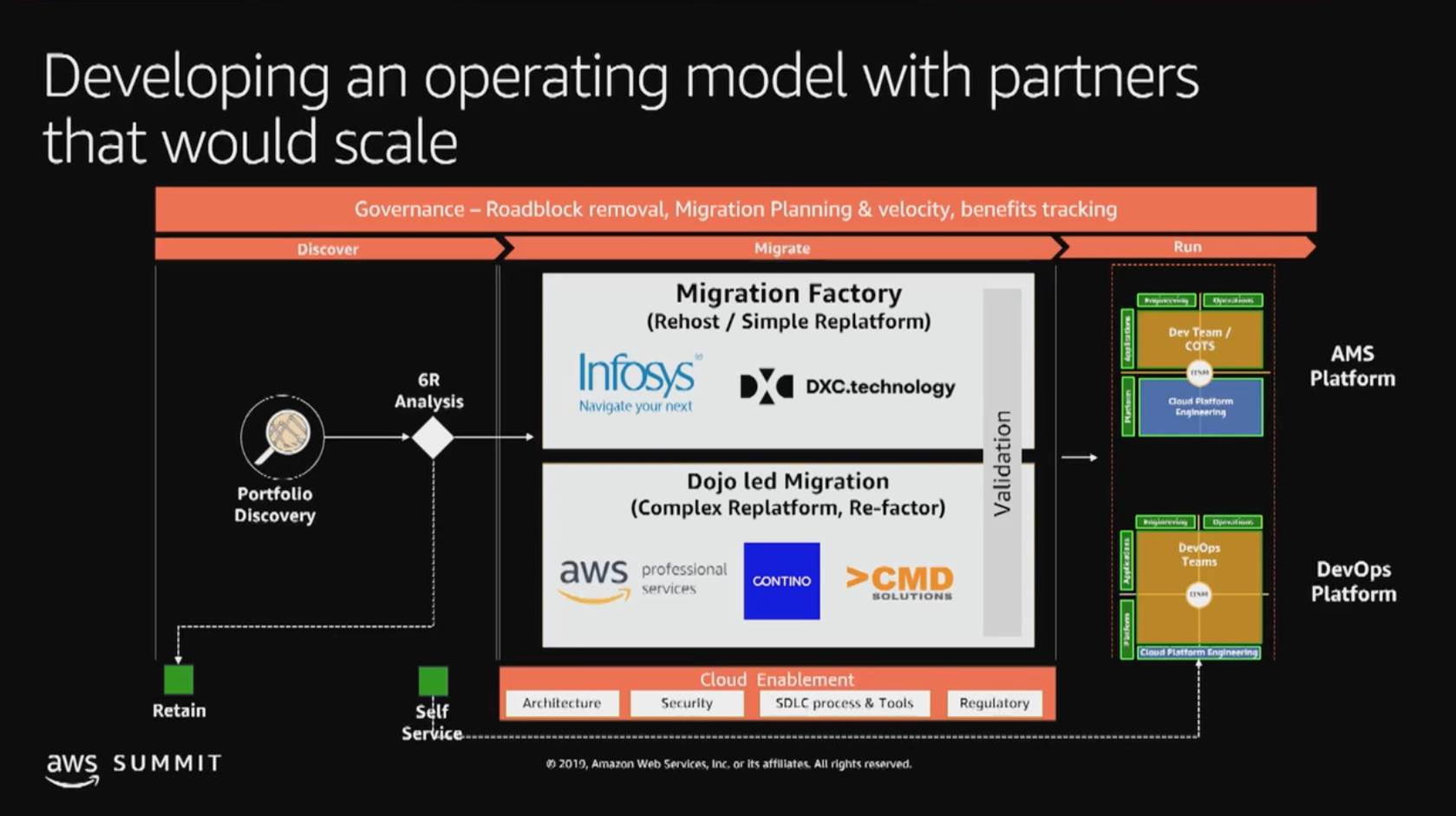NAB is building out what it is calling a “migration factory” with Infosys and DXC Technology resources to handle simple re-hosting of existing applications on cloud-based infrastructure.

The institution used the recent AWS Summit in Sydney to show off the structure of its mass migration program designed to get 35 percent of applications - 840 in real terms - into the cloud by FY20.
To date, much of the focus on NAB’s large-scale cloud transition has been on the bank’s use of AWS Managed Services (AMS) and on its Cloud Guild to build the cloud skills of internal staff.
However, it now appears to represent only one side of the bank’s broader cloud migration.
At Summit, it was revealed that NAB is essentially running a two-speed migration strategy to deal with the different needs of two separate sets of applications.
“In a modern cloud environment you need to cater for two types of applications,” AWS practice manager Matthew Carpenter said.
Carpenter was introduced as “one of the lead engineers” working from the AWS side on the NAB cloud migration project.
“You have your cloud-native 'born in the cloud' applications that are under active development with a frequent release cycle that are truly DevOps, where the development team is owning and operating the application day-to-day and running it within the cloud environment.
“However, that's not the only type of application. As with all large organisations, NAB included, there is a history of acquired software or applications that have simply matured to the point where they're no longer under active development.
“These applications can still benefit from the benefits of cloud - they can have the high resilience, high availability and autoscaling that cloud has to offer, but it doesn't necessarily mean that this application has to be in a DevOps operating model.”
That has led to two different ways to handle the migration of the bank’s applications into the cloud.
NAB calls one path “Dojo led migration”, and this involves the use of resources from AWS Managed Services, as well as Contino and cloud consultancy CMD Solutions.
Dojo led migration focuses on complex re-platforming and application refactoring works.
However, a second path is also now emerging.
This is being called the migration factory and is designed for rehosting and “simple replatforming” of applications, and appears to be run with resources from Infosys and DXC Technology.
“The factory is emerging,” AWS enterprise services manager Peter Jahnke said. “We're working through that process with [NAB] and the team.”
NAB revealed separately at the same conference that it worked with DXC Technology on a specific solution to re-platform applications reliant on older Windows Server infrastructure to the cloud using containerisation.
This may wind up being one of several migration options available in the 'factory' to the bank to get more of its applications into the cloud without much re-factoring or rework.
“If we think about the ambition that [NAB] talked about targeting 35 percent of applications in the cloud by the end of FY20, the need was to augment the dojo-related migrations we have running in the bank,” Carpenter said.
“To achieve the velocity we required, we had to augment with tooling and automation in order to hit that number.
“Through this operating model of a migration factory, augmenting the migration dojos, we were able to use the ecosystem of partners around AWS and the bank in order to achieve that goal and be working towards our target.”



























